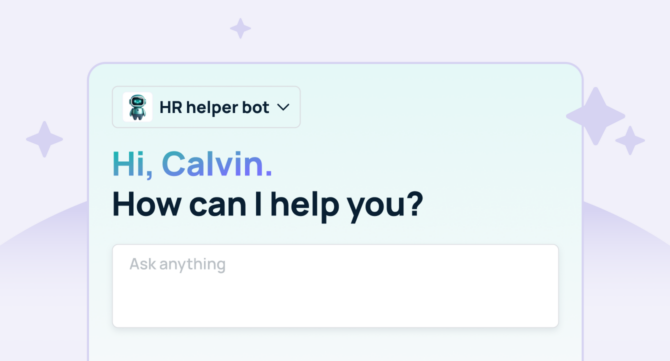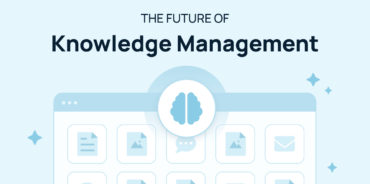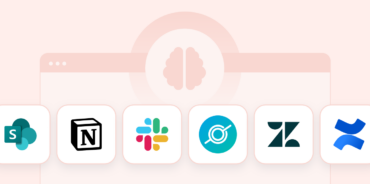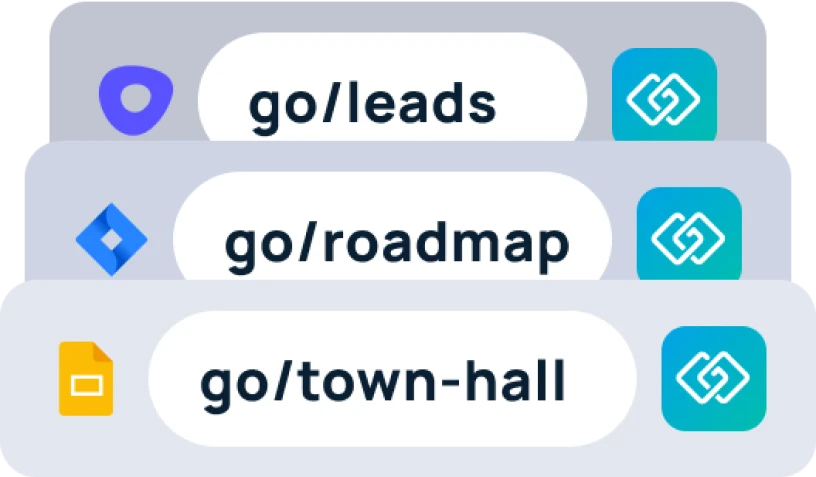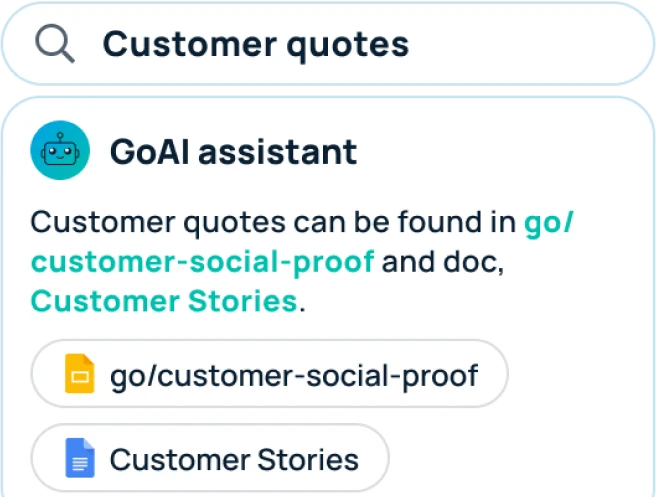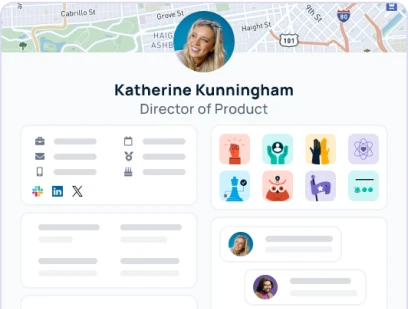AI tools are transforming workplaces by increasing productivity.
In fact, 64% of businesses expect AI to significantly boost their productivity.
And one AI tool that is gaining popularity is virtual assistants.
These tools can accomplish everyday repetitive tasks that weigh employees down.
In this article, we’ll explore HR virtual assistants designed for human resource departments. We’ll examine their capabilities, the benefits they bring, and some of the top AI virtual assistant tools available today.
What is an HR virtual assistant?
An HR virtual assistant is an AI-powered tool designed to assist HR teams in managing various tasks, ranging from answering employee queries to streamlining administrative duties. These assistants leverage natural language processing (NLP) and machine learning algorithms to understand and respond to a wide array of HR-related inquiries, effectively acting as a digital extension of your HR department.
Capabilities of HR virtual assistants
A recent survey by Eightfold AI revealed that 92% of HR leaders plan to increase their use of AI in at least one area of HR. Here are some of the areas that HR AI assistants can help with.
1. Answering employee queries
One of the most valuable capabilities of an HR virtual assistant is its ability to answer employee questions in real time. Whether an employee needs information about their benefits, company policies, or procedures for requesting time off, the virtual assistant can provide accurate and consistent responses. This not only saves time for HR teams but also ensures that employees receive the information they need quickly, improving their overall experience.
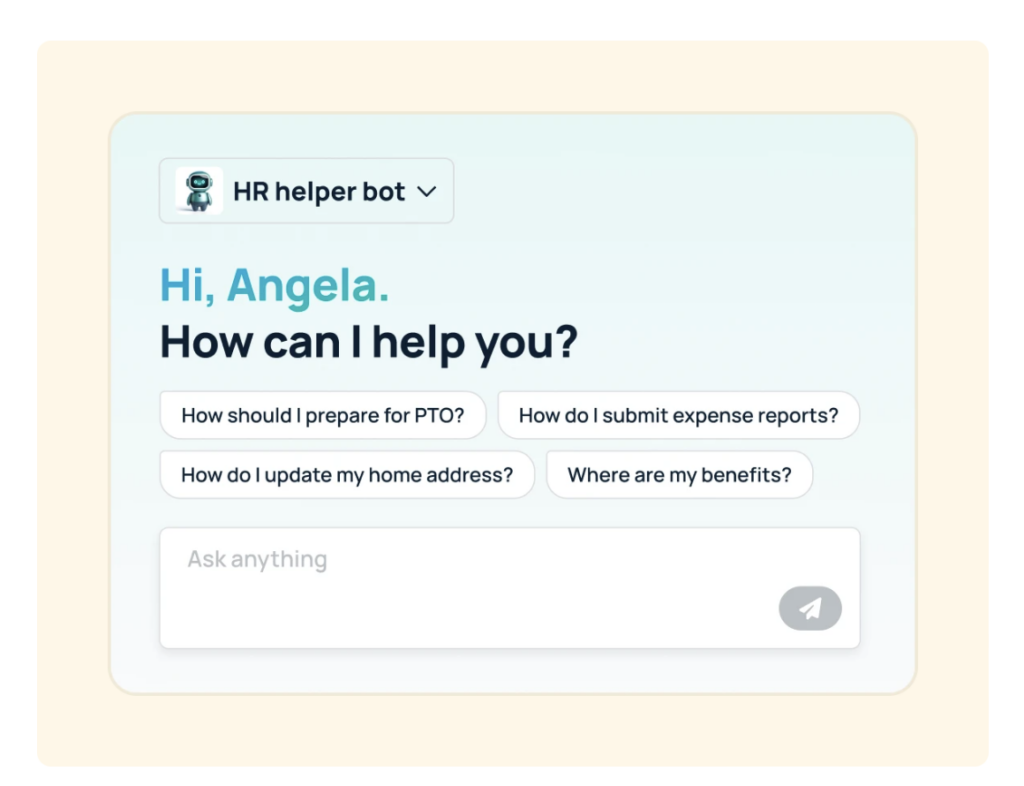
2. Enterprise search
A standout feature of some HR virtual assistants, like the one powered by GoSearch, is their enterprise search capability. These assistants can connect to a company’s internal knowledge base, surfacing relevant information whenever an employee or HR professional needs it. This feature is particularly useful for organizations with large volumes of HR-related data, as it allows users to find answers to their questions without having to sift through multiple documents or databases.
3. Onboarding assistance
Onboarding new employees is a critical HR function — but it can be time-consuming. HR virtual assistants can streamline this process by guiding new hires through the necessary paperwork, helping them understand company policies, and providing answers to any questions they might have. By automating these tasks, HR teams can ensure a smooth and efficient onboarding experience for new employees, helping them get up to speed quickly.
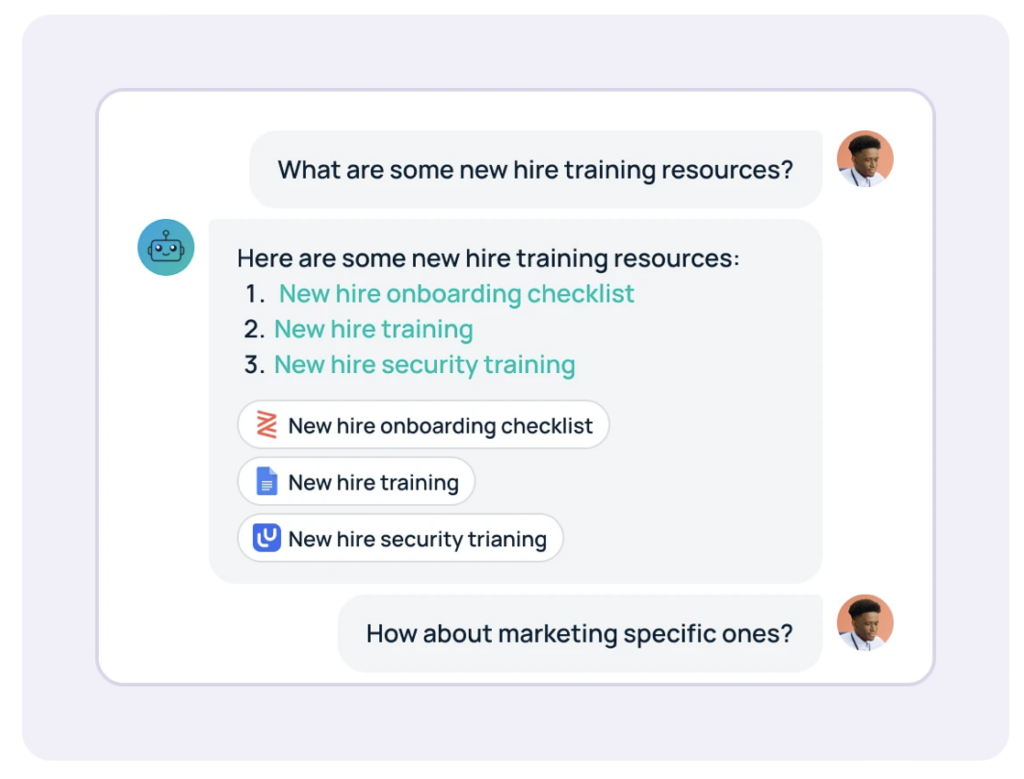
4. Scheduling and reminders
HR virtual assistants can manage calendars, schedule meetings, and send reminders to employees about important deadlines or events. This capability is especially beneficial in large organizations where coordinating schedules can be a challenge. By automating these tasks, HR teams can reduce the risk of missed appointments or deadlines, ensuring that everything runs smoothly.
5. Recruitment support
The recruitment process often involves multiple stages, from screening resumes to conducting interviews and making offers. HR virtual assistants can assist with each of these stages, helping to identify the best candidates, schedule interviews, and communicate with applicants. Some AI assistants can even conduct preliminary assessments, providing HR teams with valuable insights into a candidate’s suitability for a role before the interview stage.
6. Employee engagement
Maintaining high levels of employee engagement is crucial for organizational success. HR virtual assistants can play a key role in this area by conducting surveys, gathering feedback, and providing real-time support to employees. By actively engaging with employees and addressing their concerns, these assistants can help HR teams foster a positive work environment and improve overall engagement.
7. Policy updates and notifications
Keeping employees informed about policy changes or updates is essential for ensuring compliance and maintaining a smooth workflow. HR virtual assistants can automatically notify employees about changes to company policies, procedures, or benefits, reducing the risk of miscommunication and ensuring everyone is kept in the loop.
Benefits of an HR virtual assistant
Implementing a virtual HR assistant offers several benefits, including:
- Improved efficiency: By automating routine tasks, HR virtual assistants free up time for HR teams to focus on more strategic initiatives.
- Cost savings: These AI tools can reduce the need for additional full-time HR staff, helping organizations save on labor costs.
- Enhanced employee experience: With real-time responses and support, employees receive timely assistance, improving their overall experience and satisfaction.
- Consistency: HR virtual assistants provide consistent answers and support, reducing the likelihood of errors or miscommunication.
- Scalability: As companies grow, these assistants can easily scale to handle increased workloads without the need for significant additional resources.
- Data-driven insights: By analyzing interactions and data, HR virtual assistants can offer insights that help HR teams make informed decisions.
AI virtual assistant tools for HR
Several software tools offer AI-powered virtual assistants tailored for HR teams:
- GoSearch: This tool allows HR teams to create custom generative AI HR chatbots trained on all HR resources. These bots can answer team or employee HR questions, making them an invaluable resource for improving employee experiences and streamlining HR tasks.
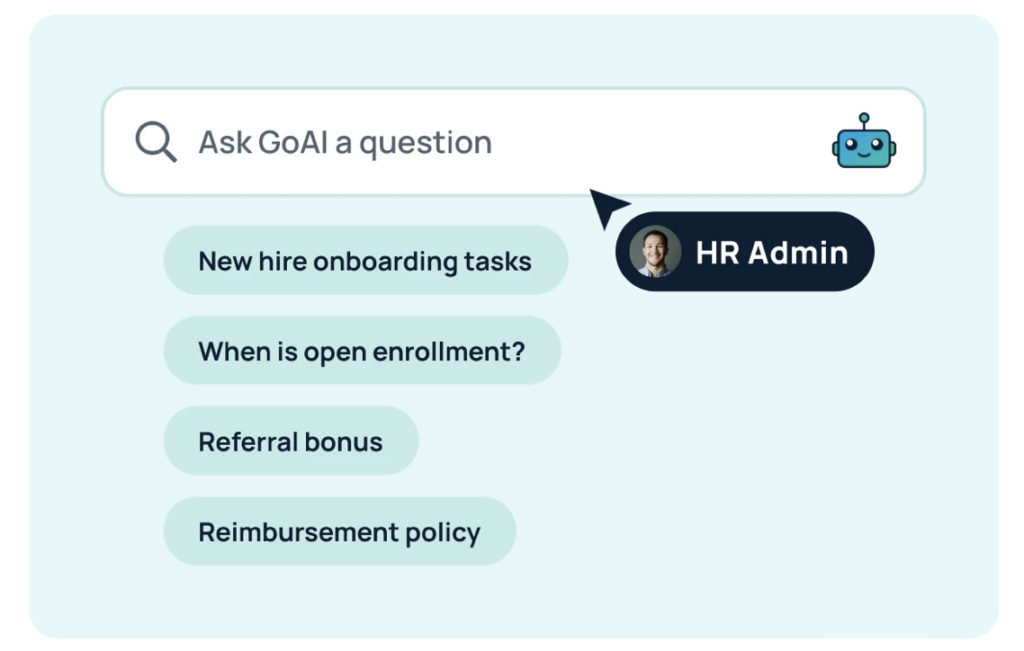
- Workday Assistant: Workday’s virtual assistant helps HR teams with tasks such as managing employee requests, scheduling interviews, and handling payroll queries.
- Eightfold AI: Eightfold AI offers an HR assistant that supports recruitment by automating resume screening, interview scheduling, and candidate communication.
- BambooHR: BambooHR’s virtual assistant provides HR support by answering employee questions and helping with onboarding processes.
- Leena AI: This AI-powered HR assistant specializes in employee engagement, providing support through surveys, feedback collection, and real-time HR support.
Get started with your very own HR virtual assistant
AI virtual assistants are improving the HR landscape by offering tools that enhance efficiency, reduce costs, and improve employee experiences.
By investing in these tools, organizations can not only improve their HR operations but also create a more agile and responsive workplace that is better equipped to meet the demands of the modern business environment.
GoSearch offers a comprehensive suite of AI-powered tools designed to help HR teams manage their tasks more efficiently. From enterprise search capabilities to custom GPTs, GoSearch provides everything you need to enhance your HR operations.
Explore our solutions today and discover how we can help you achieve your HR goals.
Search across all your apps for instant AI answers with GoSearch
Schedule a demo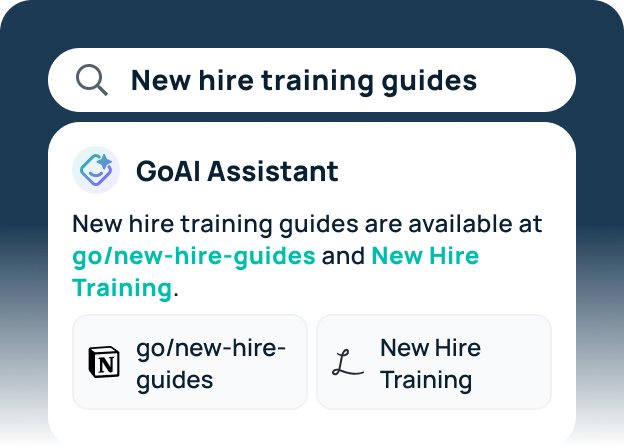
FAQs
What is the difference between an HR virtual assistant and a traditional HR assistant?
An HR virtual assistant is an AI-powered tool that automates various HR tasks, while a traditional HR assistant is a human employee responsible for managing HR functions. While both can perform similar tasks, virtual assistants offer the advantage of automation, allowing them to handle large volumes of work more efficiently.
Can HR virtual assistants be customized to meet specific company needs?
Yes, many HR virtual assistants can be customized to align with an organization’s specific policies, procedures, and workflows. This customization ensures that the virtual assistant can provide accurate and relevant support tailored to the company’s unique requirements.
Are HR virtual assistants secure?
HR virtual assistants are designed with security in mind, often incorporating encryption and other protective measures to safeguard sensitive employee data. However, it’s essential to choose a reputable provider and ensure that the tool complies with industry standards and regulations.
How do HR virtual assistants improve employee engagement?
HR virtual assistants improve employee engagement by providing timely and accurate support, conducting surveys, and gathering feedback. By addressing employee concerns and needs promptly, these tools help create a positive work environment, leading to higher levels of engagement.
Can HR virtual assistants be integrated with existing HR systems?
Yes, most HR virtual assistants can be integrated with existing HR systems, such as payroll, benefits management, and recruitment platforms. This integration allows for seamless communication and data sharing, enhancing the overall efficiency of HR operations.
What types of organizations can benefit from HR virtual assistants?
HR virtual assistants are beneficial for organizations of all sizes, from small businesses to large enterprises. They are handy for companies looking to streamline their HR processes, reduce operational costs, and improve employee experiences.
How do HR virtual assistants handle complex HR tasks?
HR virtual assistants are equipped with advanced AI models that allow them to handle complex HR tasks, such as recruitment, onboarding, and employee engagement. These models can be trained on specific datasets to ensure that the virtual assistant can perform these tasks accurately and efficiently.
What is the future of HR virtual assistants?
The future of HR virtual assistants looks promising, with ongoing advancements in AI technology expected to enhance their capabilities further. As more organizations adopt these tools, we can expect to see even greater integration of AI into HR processes, leading to more efficient and effective HR operations.
